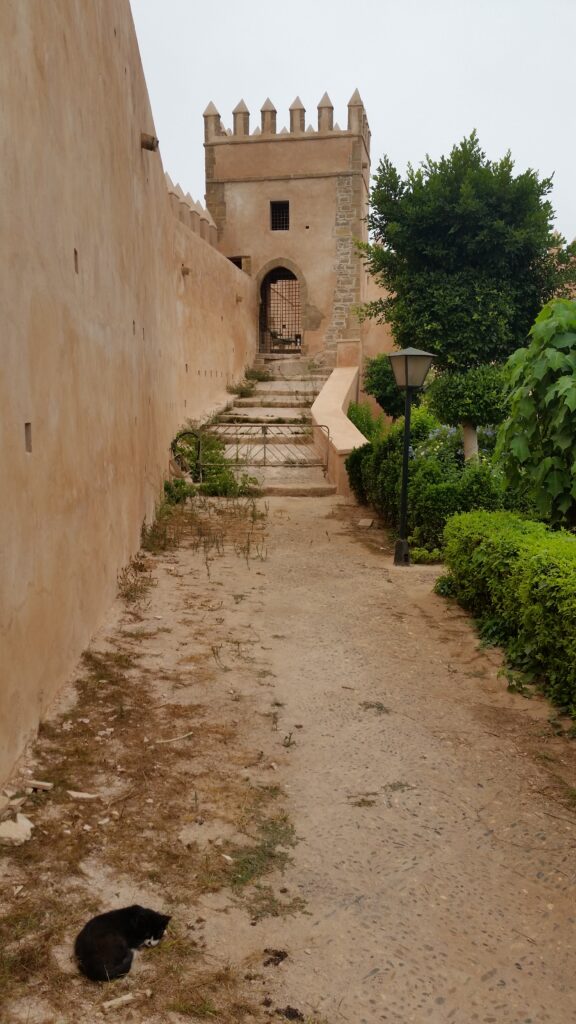By Michael Renner
In the ever-expanding world of language services, individuals embark on unique journeys with tales of dedication, passion, and diverse paths leading to the realm of language mastery. Whether through academic pursuits, cultural immersion, or self-driven passion, these language professionals connect people through the intricate threads of language and culture. However, today’s narrative is not about conventional routes. It’s about the extraordinary journey of a person whose path into the world of languages was paved through military service. I, Michael Renner, am one of the few veterans who turned their military experience into a flourishing career as a language professional. My story offers a glimpse into a world where service to nation and language expertise collide in a fusion of purpose and skill.
The military experiences that paved the way
I enlisted as a Human Intelligence Collector in the Army National Guard, which gave me the opportunity to complete the Modern Standard Arabic Basic course at the Defense Language Institute Foreign Language Center (DLIFLC) in Monterey, California.
The Modern Standard Arabic course lasted 64 weeks. Most students start with little to no prior knowledge of the language they are assigned. By the end of the course, students are expected to attain limited working proficiency in reading comprehension, listening comprehension, and speaking. This requirement is based on the Interagency Language Roundtable (ILR) scale, which was a scale adopted by the U.S. Government to measure language proficiency. Students were expected to attain at least an ILR Level 2 for reading and listening, and a Level 1+ for speaking.
At the DLIFLC, language instruction is intense, with average class time of 7 hours per day plus additional homework. This is in addition to regular military duties.
I thoroughly enjoyed the Arabic course from beginning to end. Daily lessons included vocabulary review, listening to authentic materials (such as debates), reading news articles, answering questions about matters in the Arab world, and speaking practice. There were periodic exams throughout the course to ensure students were on track to meet the required proficiency. The final test, the Defense Language Proficiency Test (DLPT), which included an Oral Proficiency Interview (OPI), measured proficiency in reading comprehension, listening comprehension, and speaking. This exam was a culmination of all that was learned during the prior 64 weeks.
During my military service, I seized a unique opportunity to immerse myself in the Arabic language by traveling to Rabat, Morocco. There, I attended a local university while living with a host family. I was expected to communicate exclusively in Arabic, both in the classroom and in everyday settings.
Each day consisted of attending class like what I experienced at the DLIFLC. Students were expected to present about various topics in the Middle East and have discussions. It included exposure to many authentic materials relative to the region of Morocco. After class, there was a fair amount of downtime to complete homework assignments and explore the city. I also had the opportunity to visit several popular destinations, including Casablanca, Marrakesh, and Chefchaoen.
Kasbah of the Udayas in Rabat
Near Michael’s Host Family in Rabat
Guided tours were given at local destinations such as museums, government centers, and libraries. Perhaps the fondest memory I have was bargaining in the streets to purchase souvenirs. It required the use of language skills and marketing in a real-world environment and was a unique experience.
Tangier on a Culture Day Visit
Marrakesh, Morocco
In addition, I had the opportunity to participate in a joint military training exercise in Amman, Jordan. There I assisted U.S. and Jordanian military personnel with translation tasks. This ensured successful completion of the exercise and enhanced cooperation between partner nations.
Language proficiency was tested annually with an additional (DLPT). To retain language skills following initial training, I had the opportunity to attend several language refresher courses through the military. This included in-person and virtual instruction. In these courses, listening, speaking, and reading skills were all emphasized. I was also provided opportunities to focus on additional Arabic dialects such as Egyptian, Iraqi, and Levantine. I was able to strengthen my language proficiency through this training, which proved to be quite valuable. In addition, analyzing Arabic text, addressing cultural nuances, and answering questions based on context were all critical skills acquired. I also attended a language conference which brought language professionals together from various sectors in the military.
Through my military language training, I learned about many opportunities through the defense language sector and had a desire to study Arabic following separation of service. It was great to find out that hard-earned language skills from the military can be valuable in the industry today.
Transitioning from military to civilian life
Discovering that there are multiple opportunities for a career in language led me to pursue further education in translation and to become aware of the ATA.
There are so many opportunities to couple language and business skills across industries, and it doesn’t have to end following the completion of one’s military service. I think military linguists bring a depth of expertise and cultural knowledge that is unique and can enrich our profession.
In addition, diversification is seen as an intelligent way to succeed in the future of the T&I industry, and soft skills such as flexibility and adaptability are practiced and nurtured throughout military language education.
I am a current M.A. student studying translation with an Arabic concentration at Kent State University. With Kent State also being a military-friendly university, I was able to use the GI BILL® towards the completion of the degree.
I’ve always had an itch for language, and choosing a career that involved it seemed like a natural fit.
Additionally, many of the topics studied in my military language education involved diplomacy, international relations, general knowledge, and national security. Since terminology and vocabulary were stressed heavily during the Arabic courses and in my military education, I have a strong foundation to develop my specializations in those areas as I launch my freelance translator career.
After having the fortunate opportunity to attend ATA64 in Miami this year, I learned how much work, dedication, and persistence the T&I profession requires. I have adapted my plan to increase my focus on marketing and other business aspects of freelancing as I continue to develop my hard skills. This focus is especially important in the future of translation. There are so many tasks that are non-translation related, from setting rates, setting up a website, utilizing social media, writing a strong resume, and marketing services. As I start my freelancing career, I plan to focus on each one of these aspects carefully and strategically. I am also preparing to become ATA-Certified. This will certainly require a great deal of effort and attention. However, the ability to continue a career path that allows me to use my language skills and cultural knowledge makes it worth it.
About the Author
 Michael Renner, a seasoned professional pursuing a Master’s in Translation Studies at Kent State University, has over eight years of professional experience in government service. As an Arabic Linguist in the Illinois Army National Guard, he honed linguistic expertise and cultural fluency. Michael enriched his expertise through immersive studies in Morocco and Jordan, expanding language proficiency and cross-cultural insights. As member of the American Translators Association (ATA) Government Division, Michael stays abreast of industry trends and fosters professional connections. His diverse background, coupled with a passion for effective communication and language, positions him as a valuable asset in bridging linguistic and cultural gaps globally. As he pursues advanced studies, Michael is poised to make meaningful contributions that reflect his dedication to linguistic and cultural understanding.
Michael Renner, a seasoned professional pursuing a Master’s in Translation Studies at Kent State University, has over eight years of professional experience in government service. As an Arabic Linguist in the Illinois Army National Guard, he honed linguistic expertise and cultural fluency. Michael enriched his expertise through immersive studies in Morocco and Jordan, expanding language proficiency and cross-cultural insights. As member of the American Translators Association (ATA) Government Division, Michael stays abreast of industry trends and fosters professional connections. His diverse background, coupled with a passion for effective communication and language, positions him as a valuable asset in bridging linguistic and cultural gaps globally. As he pursues advanced studies, Michael is poised to make meaningful contributions that reflect his dedication to linguistic and cultural understanding.




